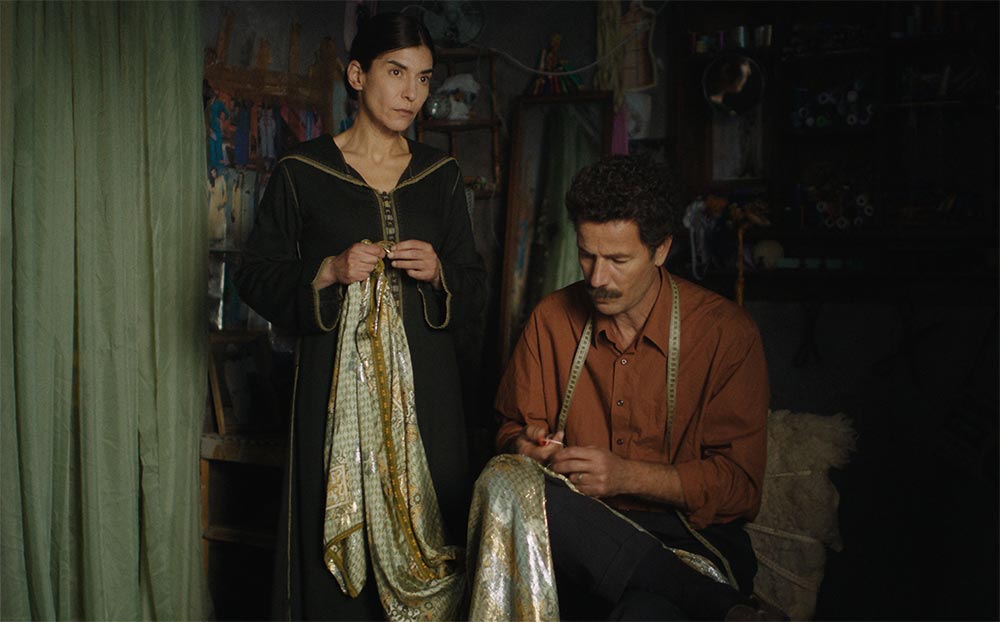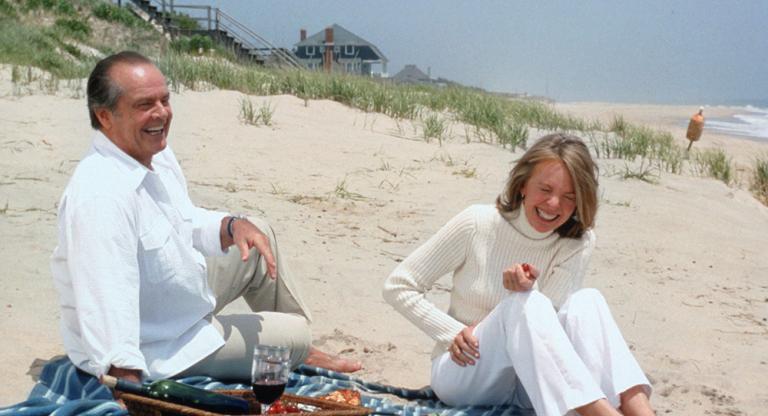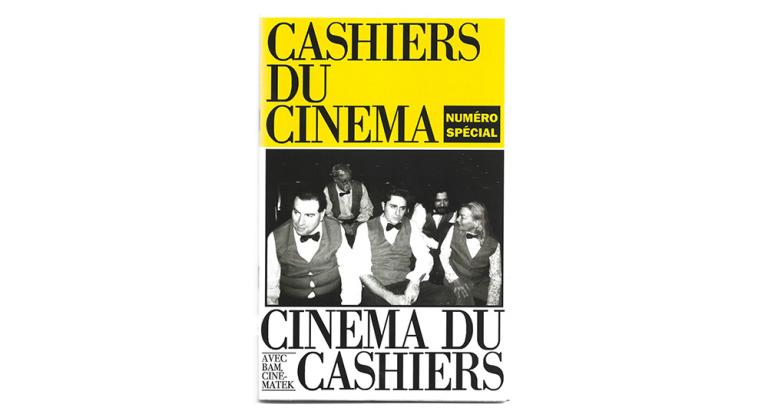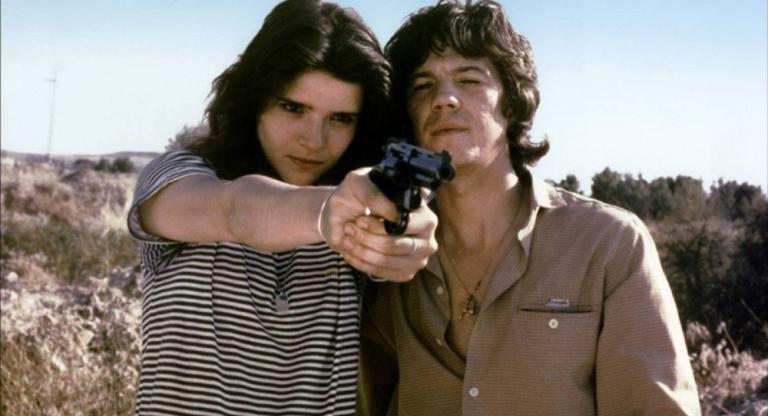Of all the amazing things about our sense of sight, perhaps the most remarkable is its ability to conjure, in the viewer, physical sensations. When a character in a film runs her hand through tall grass, we can easily imagine the flutter against our own palms—and we flinch or look away when a blade slices through the open eye in the famous match cut of Un Chien Andalou (1929).
Maryam Touzani's The Blue Caftan (2022) is an especially tactile film: in it, hands linger on cool folds of satin, and thick, braided thread runs between callused fingers. This is the world of Halim (Saleh Bakri), a traditional Moroccan seamster, or maalem, who lives and works in the Salé Medina with his wife, Mina (Lubna Azabal). Behind on their projects, the couple hires an apprentice, Youssef (Ayoub Missioui), though Mina warns Halim not to get attached—buying machine-made clothing is cheaper and faster than commissioning a handmade caftan, and no young person has any genuine interest in learning the obsolescing skills of a maalem. Youssef will undoubtedly run off as soon as a better job becomes available, like all the others before him. Still, when Youssef needs to change his clothes one day at the store, Halim glances furtively at his apprentice's body. What cannot be touched can still be vividly imagined.
Mina isn't oblivious to where her husband's attention is being pulled (nor, apparently, to the dual purposes of his bathhouse visits), but where a lesser film might have played up Halim's betrayal, The Blue Caftan allows it to bring the couple closer together. Mina, it turns out, is critically sick; though she tries to press ahead, she is soon no longer able to join Halim at their store. Instead of using the opportunity to pursue time with Youssef, Halim devotes himself to caring for Mina, sidelining even the beautiful blue caftan he'd been embroidering for a time-pressed client.
While the first half of the film is obsessed with the textures of fabrics and patterns of stitches, Touzani and her cinematographer, Virginie Surdej, linger on different sorts of images in the second half: The way a tangerine turns soft under your fingers when it starts to rot. The knobs of vertebrae that press painfully through a sickly back, or the tight seam of an old scar. The way a gentle look can absolve its recipient. Yes, The Blue Caftan is a rare Arabic-language gay love story, but it's also a film about the profound tenderness of being seen. Sometimes, even physical touch can be a secondary pleasure.
The Blue Caftan is now playing at Film Forum.



